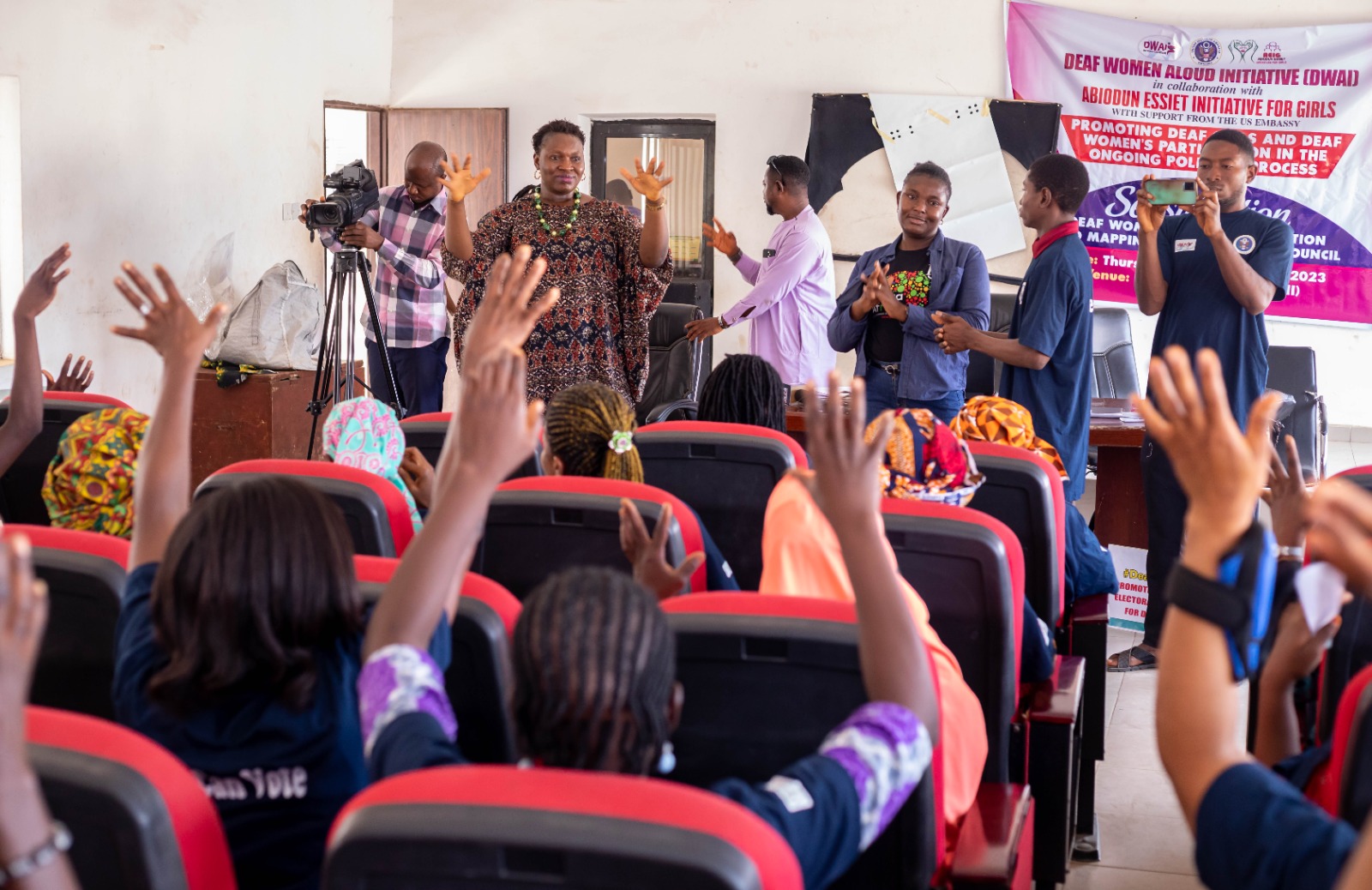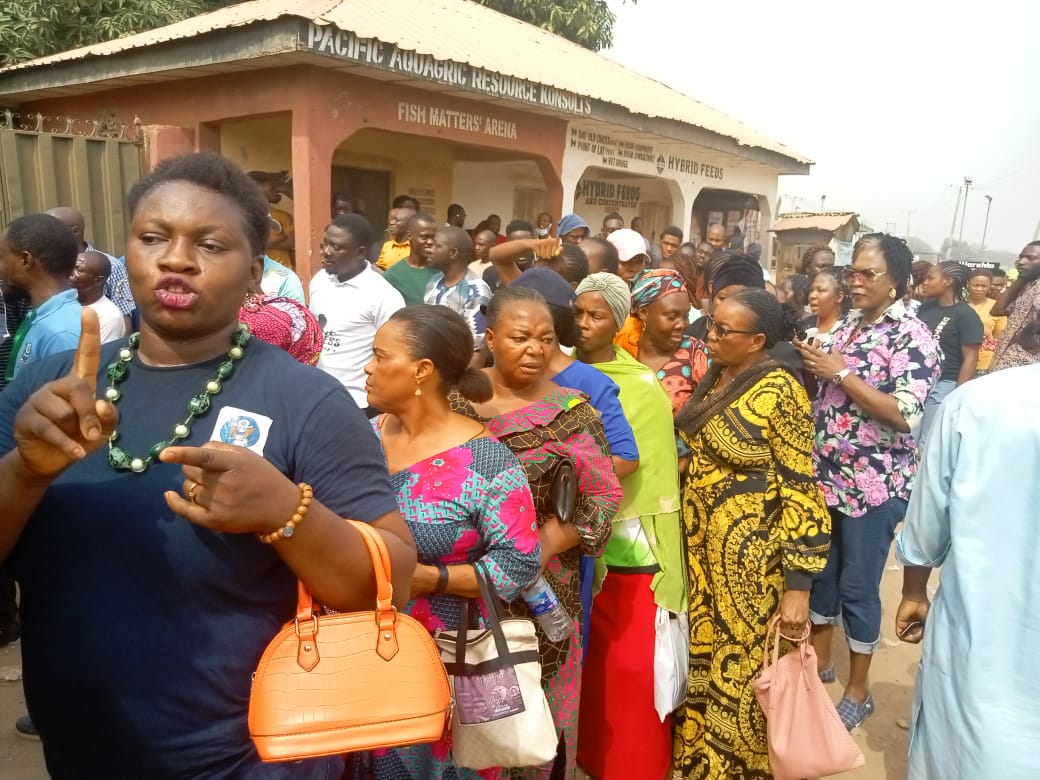Making Sure Every Voice Is Heard, Every Vote Counted
aeif_project_photo_img-20230203-wa00581.jpg
 Photo courtesy U.S. Embassy Abuja
Photo courtesy U.S. Embassy Abuja
Hellen Beyioku-Alase, an exchange alumna of the Mandela Washington Fellowship for Young African Leaders program and a grant winner of the 2022 Alumni Engagement Innovation Fund (AEIF), knows the importance of being active within a democracy. It means making sure every voice is heard and every vote is counted – especially from marginalized communities like deaf women and girls in Nigeria.
As a deaf person and disability rights activist, Hellen knows how crucial it is to involve the deaf community in the voting process and how vulnerable they are to being taken advantage of, and misinformed about the political system.
Hellen has dedicated her time to improving how the deaf community participates in the voting process in Nigeria, along with providing them with the education and tools necessary to have their votes heard. As executive director of the non-governmental organization Deaf Women Aloud Initiative (DWAI) and the chair of the Deaf Women Association of Nigeria, Abuja Chapter, she strives to amplify the voices of deaf women in Africa whose voices have been drowned out by the convention and status quo.“We have over 30 million deaf people and only a few vote,” Hellen said, adding: “We decided to organize this [project] on our own to sensitize them on the voting processes.”
Her project - “Promoting the Inclusion of Deaf Girls and Women’s Participation in the Political Process in Nigeria” - was funded through AEIF, a U.S. Department of State grant. It involved a variety of activities, including voter registration drives, voter education, sensitization campaigns, and media advocacy for balanced election coverage. It was carried out in collaboration with local organizations and stakeholders, and assisted 40 percent of the participants with getting permanent voter cards. The project also brought more media advocacy efforts, which increased media coverage of deaf women and girls in the election process.
As a result, the project was a major success, with one participant noting, “With the sensitization [training], I was no longer afraid to go out and vote.”Hellen knows that her work is ongoing, noting that there is still a need for accessible communication methods in reaching deaf women and girls, partnerships and collaborations in ensuring sustainability and impact, and for continued advocacy efforts to ensure the political inclusion of deaf women and girls – and she’s making it happen, one project at a time.


